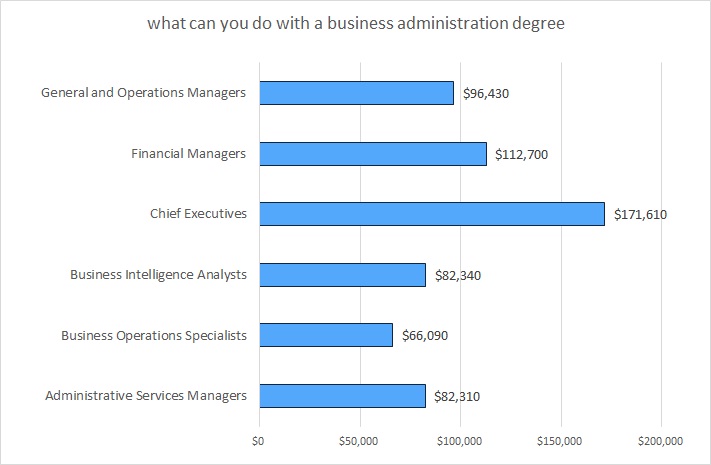Bachelor In Business Administration

In today’s fast-paced and competitive business landscape, having a solid educational foundation is crucial for aspiring professionals seeking to make a meaningful impact. A Bachelor in Business Administration (BBA) degree is one of the most sought-after undergraduate programs, offering a comprehensive understanding of business principles, practices, and methodologies. This degree program is designed to equip students with the knowledge, skills, and competencies necessary to succeed in various business environments, from startups to multinational corporations.
Overview of the BBA Program
The BBA program is typically a four-year undergraduate degree that focuses on providing students with a broad understanding of business and management practices. The curriculum is designed to cover a wide range of subjects, including accounting, finance, marketing, human resources, operations management, and strategic management. By exploring these areas, students gain a holistic understanding of how businesses operate and how they can contribute to their success.
One of the key benefits of a BBA program is its flexibility. Many universities offer specializations or concentrations within the BBA degree, allowing students to focus on areas that align with their career goals and interests. For example, a student interested in the financial sector might choose to specialize in finance, while someone passionate about digital marketing might opt for a marketing specialization.
Career Opportunities
A BBA degree opens the door to a multitude of career opportunities across various industries. Graduates are equipped with the skills to manage, lead, and innovate, making them highly sought after by employers worldwide. Some common career paths for BBA graduates include:
- Management Consultant: Helping organizations improve their performance by analyzing existing problems and developing plans for improvement.
- Financial Analyst: Working with financial data to help businesses and organizations make informed decisions about investments and other financial matters.
- Marketing Manager: Responsible for developing and executing marketing strategies to reach the target audience and boost sales.
- Human Resources Manager: Overseeing the recruitment, training, and development of employees within an organization.
- Operations Manager: Coordinating and managing the day-to-day activities of a company or organization to ensure efficiency and productivity.
Skills and Competencies
The BBA program is not just about imparting knowledge; it’s also about developing a set of skills and competencies that are essential for success in the business world. Some of the key skills that BBA graduates acquire include:
- Analytical and Problem-Solving Skills: The ability to analyze complex business problems and develop effective solutions.
- Communication and Interpersonal Skills: Being able to communicate effectively with colleagues, clients, and stakeholders at all levels.
- Leadership and Team Management Skills: The capacity to lead teams, motivate team members, and manage conflicts.
- Adaptability and Flexibility: The ability to adapt quickly to changing business environments and priorities.
- Ethical Awareness and Responsibility: Understanding the importance of ethical business practices and corporate social responsibility.
Future Prospects
The demand for BBA graduates is expected to remain strong due to the constant evolution of the business world. As technology advances and global interconnectedness increases, businesses are looking for professionals who can navigate these changes with agility and innovation. A BBA degree provides a solid foundation for pursuing higher education, such as an MBA, or for entering the workforce directly. Many BBA graduates go on to become successful entrepreneurs, innovators, and leaders in their chosen fields.
Conclusion
In conclusion, a Bachelor in Business Administration offers a wide-ranging and dynamic education that prepares students for a variety of roles in the business sector. With its broad curriculum, flexibility in specialization, and emphasis on developing practical skills, the BBA program is an attractive option for those aiming to make a significant impact in the business world. Whether you’re interested in climbing the corporate ladder, starting your own business, or contributing to the non-profit sector, a BBA degree can provide the foundational knowledge, skills, and networking opportunities to turn your aspirations into reality.
Frequently Asked Questions
What is the typical duration of a BBA program?
+The typical duration of a BBA program is four years, consisting of eight semesters.
Can I pursue an MBA after completing my BBA?
+Yes, many BBA graduates choose to pursue an MBA for further specialization and career advancement.
What kind of specializations are available in a BBA program?
+BBA programs often offer specializations in finance, marketing, human resources, international business, and more, depending on the institution.
Is a BBA degree recognized internationally?
+Yes, a BBA degree from a reputable institution is recognized internationally and can open up global career opportunities.
What skills does a BBA program help develop?
+A BBA program helps develop analytical, communication, leadership, and problem-solving skills, among others.
By considering these aspects, it’s clear that a Bachelor in Business Administration can be a powerful tool for those looking to embark on a successful and fulfilling career in the business world. Whether your goals are entrepreneurial, corporate, or socially oriented, the BBA program offers a versatile and comprehensive education that can help you achieve your aspirations.


